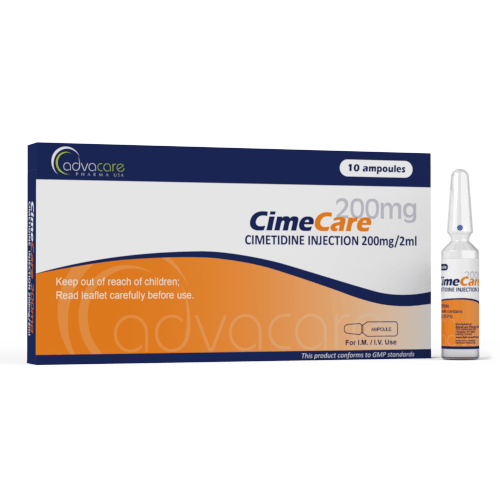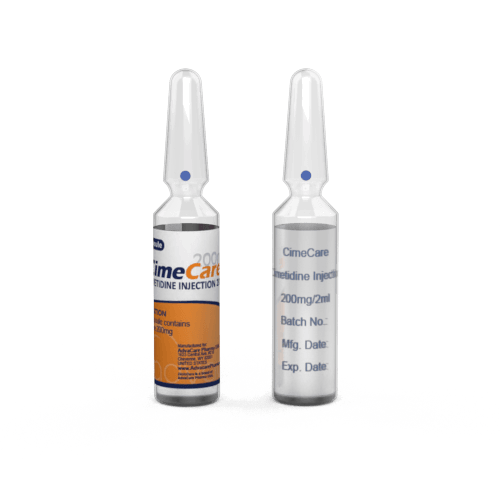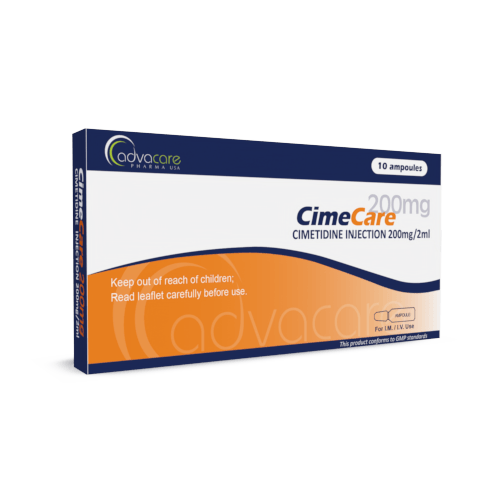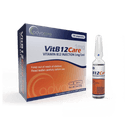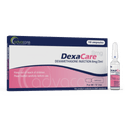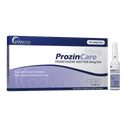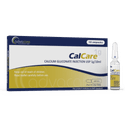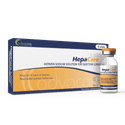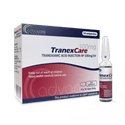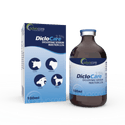- Home›
- Pharmaceuticals›
- Injections›
- Small Volume Injections›
- Cimetidine Injection
Cimetidine Injection
Dosage
Packaging
What is Cimetidine?
Active Ingredients: Cimetidine
Cimetidine Injection is used to treat and prevent ulcers. It is indicated for the treatment of some stomach and throat conditions, such as gastroesophageal reflux disease (GERD) and erosive esophagitis. It is effective in treating symptoms like stomach pain, heartburn, persistent cough, and trouble sleeping.
Injections of Cimetidine are typically administered if a patient is unable to take oral medications. This medication is also prescribed to prevent stomach bleeding in seriously ill patients in a hospital setting.
Cimetidine belongs to the class of drugs called histamine H2 blockers. The active ingredient works by blocking histamine from the H2 receptors, which reduces the amount of acid that the stomach produces. This drug competitively inhibits histamine and binds to histamine H2 receptors. It has a wide range of pharmacological actions. Besides inhibiting gastric acid secretion, it can function on the pepsin and gastrin output. It can block the activity of cytochrome P-450. The final outcome is a reduced gastric acid secretion and a reduction in gastric volume and acidity.
In healthy patients, cimetidine demonstrates a 60% bioavailability, which increases to 70% in individuals with peptic ulcer disease. Approximately 22.5% of cimetidine binds to plasma proteins. Most of the drug (58-77%) is eliminated unchanged in the urine after intravenous administration. The primary metabolite is cimetidine sulfoxide, and 10-15% of the total elimination consists of it. This drug is an enzyme inhibitor and can impair the metabolism of some co-administered drugs. Patients should inform their doctors if they take some prescribed or unprescribed medications.
This drug is also available in the form of tablets.
AdvaCare Pharma is a trusted global exporter of Cimetidine Injections. This medication is manufactured in our GMP-certified facilities in China, India, and the USA. Our production facilities are regularly inspected to ensure they comply with WHO's standards, rules, and regulations.
Why are we a leading Cimetidine manufacturer?
AdvaCare Pharma, a US-owned pharmaceutical company, is a manufacturer of Cimetidine Injection with GMP-compliant manufacturing facilities located worldwide. We conduct frequent GMP, third-party and internal facility inspections to ensure that our manufactured injectable treatments exceed the stringent requirements of importing countries and our distributors.
As a renown Cimetidine manufacturer and global supplier of 120+ pharmaceutical injection products, our global reach extends to over 65 markets ensuring that pharmaceutical distributors, hospitals, pharmacies, NGOs and government institutions receive the quality-assured treatments they need.
Uses
What is Cimetidine used for?
It is used to treat ulcers, gastroesophageal reflux disease (GERD), and other conditions caused by too much stomach acid.
This drug is used to reduce gastric acid secretion and can help in the treatment process of the following:
- Duodenal ulcers
- Non-malignant gastric ulcers
- Gastroesophageal reflux
- Zollinger-Ellison Syndrome
- Systemic mastocytosis
- Multiple endocrine adenomas
It is also used for prophylaxis of recurrent gastric or duodenal ulcers. It is used as adjunctive therapy in cystic fibrosis in children, but it should be used with caution and well-regulated dosages. It can treat NSAID-induced lesions and gastrointestinal damage.
How are Cimetidine Injections used?
This medication is manufactured as a solution to be injected into a vein or muscle. It is to be administered by a healthcare professional in the hospital or clinic setting. It should be injected slowly over at least 5 minutes. The dosage and the length of the treatment depend on the severity of the medical condition and the patient’s response.
What dose should be given?
The usual dose for adults is 200mg every 4 to 6 hours.
Refer to a doctor or pharmacist for guidelines on the exact dosage.
Can this drug be used during pregnancy?
Acid-suppressing drugs during the first trimester of pregnancy do not lead to significant teratogenic risks. Cimetidine belongs to the category B drugs in pregnant females, according to the FDA. Animal studies do not show a fetal risk. There are no adequate studies on humans during pregnancy regarding using Cimetidine.
Are there any dose recommendations?
Patients with a glomerular filtration rate of 10 to 50ml/minute should receive 50% of the normal dose. In older patients (older than 65 years), the dose should be lower to prevent the risk of mental status changes.
Are there any significant side effects of this drug?
This drug might have antiandrogen properties, which lead to feminization and sexual dysfunction in males.
Does Cimetidine have a teratogenic effect?
Animal studies show no evidence of impaired fertility or fetus side effects due to Cimetidine. There are no adequate human studies that can confirm the same in humans. This drug should be used with caution in humans and only when clearly needed.
Can Cimetidine be used in nursing mothers?
Cimetidine is secreted in the milk, and nursing should be stopped when the patient is being treated with this drug.
Is Cimetidine safe for pediatric patients?
Usage of Cimetidine is limited in pediatric patients. It is not recommended for patients under the age of 16 unless the physician suggests it. When prescribed to children, the dose should be adjusted depending on the patient’s weight. It should be added only if the benefits outweigh the risks.
Can immunocompromised patients use Cimetidine?
Immunocompromised patients treated with Cimetidine might have a decreased gastric acidity, and this increases the possibility of superinfections with Strongyloidiasis.
Is only Cimetidine enough to treat excess gastric acid issues?
It depends on the medical condition of the patient. Sometimes only this drug is enough for the treatment process. In severe cases, other medications should be added, and some conditions should be treated symptomatically.
Does Cimetidine have anticancer properties?
Abnormal cytokine expression patterns, potentially induced by the local production of histamine through H2 receptors, may lead to the suppression of tumor immunity. Both clinical and preclinical investigations have demonstrated the anticancer and antitumor properties of cimetidine. These effects are due to the inhibition of tumor cell adhesion, antiangiogenic activity, and the stimulation of the immune system. Surgery may diminish cellular immunity, and cimetidine treatment has shown the potential to mitigate this effect. This drug can lead to a survival advantage for cancer patients.
What should be done in cases of Cimetidine overdoses?
If a Cimetidine overdose occurs, the patient's respiratory and cardiovascular function should be monitored. The patients should get a symptomatic and supportive treatment that might include antiemetics. Gastric lavage should be performed in severe cases, and activated charcoal can significantly improve the patient’s health status.
Other warnings
This drug can elevate the serum creatinine levels in a high percentage of patients. This can be resolved if the treatment stops. Renal function should be evaluated before and during the treatment with Cimetidine, especially in patients with renal impairments.
Patients who have hypersensitivity reactions to this drug or other similar H2-receptor antagonists should not use this drug.
Gastrointestinal pathologies and drug toxicities from this drug include blood in the stool. Patients with previous serious gastrointestinal damage should be aware of this sign.
Bone marrow suppression might occur during the treatment with Cimetidine. Complete blood counts should be performed to detect any changes in the blood.
Overdoses of this drug are rare, but in cases of toxicity, the airway and cardiovascular status should be monitored carefully. Gastric lavage for a decontamination of Cimetidine is required in some cases. To reduce the drug absorption, activated charcoal should be given.
Side Effects
As with all pharmaceuticals, some unwanted effects can occur from the use of Cimetidine Injection.
Common side effects include, but may not be limited to:
- diarrhea
- headache
- nausea or vomiting
Serious side effects may include:
- signs of an allergic reaction
- difficulty swallowing
- signs of internal bleeding
- changes in mood
- confusion
- breast tenderness
Adverse effects that have a 1-10% occurrence are:
- headaches (2.1%)
- somnolence (1%)
- dizziness (1%)
- gynecomastia (0.3-4%)
Adverse effects without defined frequency are:
- confusion in older patients
- gastrointestinal symptoms
- impotence
For a comprehensive understanding of all potential side effects, consult a medical professional.
If any symptoms persist or worsen, or you notice any other symptoms, please call your doctor.
Precautions
Do NOT use Cimetidine Injection if:
- You are allergic to Cimetidine or other H2 blockers.
- You have a medical history of heart problems, immune system problems, kidney disease, liver problems, or lung diseases.
- You have impaired kidney function.
- You have other allergies.
The length and the dosage of this drug depend on the medical condition and the patient’s response. In children, the dosage depends on the body weight. The dosage is increased only in consultation with the doctor who prescribed the medication.
The medication should be properly stored.
Patients should inform their doctors if the condition does not improve or worsen.
This drug should not be used with dofetilide, eliglustat, fezolinetant, lomitapide, and pimozide.
Patients should inform their doctors if they ever have been diagnosed with human immunodeficiency virus (HIV), acquired immunodeficiency syndrome (AIDS), or kidney or liver disease.
Patients should inform their doctors if they are pregnant or planning to become pregnant.
Before treatment, consult your doctor regarding any medications you are taking to address potential drug interactions.
This medication may not be suitable for people with certain conditions, so it is important to consult with a doctor if you have any health conditions.
Cimetidine 200mg: Why the most common dose?
Cimetidine 200mg is commonly used for its effective acid reduction in treating conditions like GERD and ulcers. This dose provides sufficient acid suppression with a lower risk of side effects. Higher doses, such as Cimetidine 300mg, are used for severe conditions under medical supervision.
References
Effects of cimetidine on the healing and recurrence of duodenal ulcers and gastric ulcers
Cimetidine can help in the healing and recurrence of duodenal and gastric ulcers.
This study revealed that cimetidine can significantly promote duodenal and gastric ulcer healing when compared to placebo.
This drug can also diminish the recurrence of only duodenal ulcers.
The findings from this study indicate that cimetidine reduces high gastric acid production and heals duodenal and gastric ulcers. It can also prevent the recurrence of duodenal ulcers.

You might be interested in...
Why AdvaCare Pharma?
As an industry leader, we are aware of our responsibility to provide affordable and sustainable solutions to improve healthcare worldwide.
